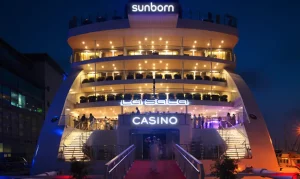
Cruise ships, synonymous with luxury and entertainment, often feature onboard casinos as part of the allure for passengers seeking a complete vacation experience. However, the authorization and oversight of casinos on cruise ships are subject to a complex web of international maritime laws, the jurisdiction under which the ship operates, and the regulations of the countries it visits. This article explores the intricate landscape of casino authorization on cruise ships, shedding light on the key players and regulatory frameworks that govern these floating gaming establishments.
International Maritime Laws:
The seas may be vast and seemingly limitless, but even in international waters, cruise ships must adhere to certain regulations. International maritime laws, including conventions like the United Nations Convention on the Law of the Sea (UNCLOS), establish a framework for the rights and responsibilities of countries in their use of the world’s oceans. However, these laws generally do not directly address the authorization or operation of casinos on cruise ships, leaving the specifics to be determined by the flag under which the ship sails.
Flag State Authority:
The concept of flag state authority is crucial in understanding who holds the authorization over a casino on a cruise ship. Cruise ships register under the flag of a specific country, known as the flag state, which grants them legal status and subjects them to the laws and regulations of that nation. Consequently, the authorization of onboard casinos falls under the jurisdiction of the flag state. This authority extends to determining the types of games allowed, age restrictions, and other aspects of casino operations.
Territorial Waters and Port State Control:
While cruise ships operate under the authority of their flag state in international waters, the situation changes as they approach the territorial waters of specific countries or dock at ports. Port state control allows the coastal state to enforce its own regulations when the ship is within its jurisdiction. This can impact casino operations, as different countries have varying stances on gambling. Some nations may require casinos to remain closed while the ship is in port, while others may permit limited operations.
Onboard Policies and Cruise Line Regulations:
In addition to external regulations, individual cruise lines often establish their own policies regarding onboard casinos. These policies may include rules on age restrictions, responsible gambling practices, and the types of games offered. Cruise lines must strike a balance between providing an enjoyable and entertaining experience for passengers and complying with the diverse regulatory environments they encounter during their journeys.
Collaboration with Gaming Commissions:
To further complicate matters, cruise ships that traverse international waters and visit multiple jurisdictions must collaborate with various gaming commissions and regulatory bodies. These entities may have specific requirements for casinos operating within their territories, ranging from licensing fees to adherence to strict gaming standards. Cruise lines must navigate these relationships to ensure compliance and avoid legal complications.
Emerging Trends and Challenges:
As the cruise industry continues to evolve, so do the challenges associated with casino authorization. Emerging trends include the integration of advanced technology, such as online and mobile gaming options, which further blur the lines of jurisdiction and complicate the regulatory landscape. Additionally, the rise of global health crises, like the COVID-19 pandemic, has prompted cruise lines to reassess and adapt their onboard casino operations in response to changing public health considerations.
Conclusion:
The authorization of casinos on cruise ships is a multifaceted process, influenced by international maritime laws, flag state authority, port state control, onboard policies, and collaboration with gaming commissions. As the cruise industry sails into the future, it faces the ongoing challenge of navigating this intricate regulatory landscape while providing passengers with an exciting and responsible gaming experience. The success of onboard casinos hinges on the ability of cruise lines to adapt to evolving legal frameworks, emerging technologies, and global health considerations, ensuring that the allure of gaming at sea remains a harmonious and compliant element of the cruise experience.